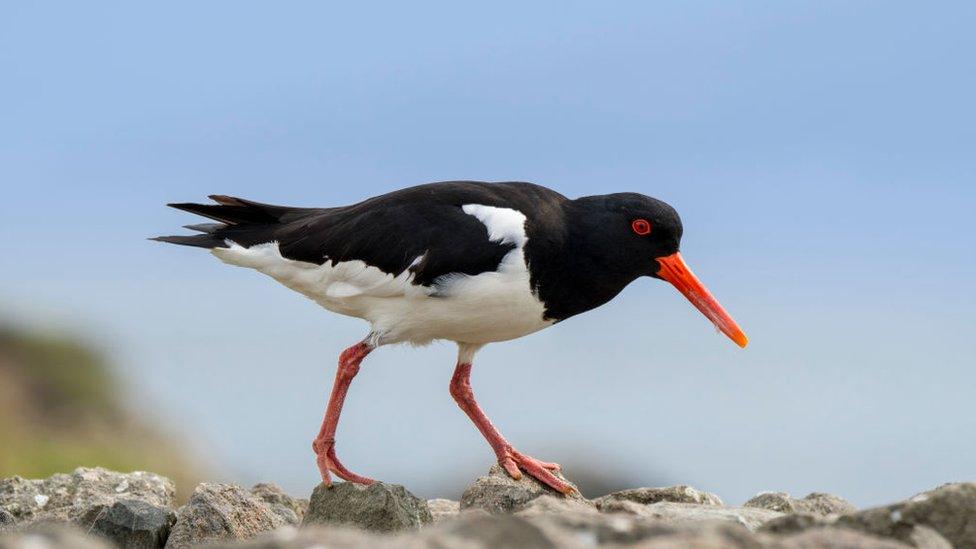Orkney bird tag tracked to London home
- Published

A bird tag which tracked an oystercatcher's flight from Dublin to Orkney appears to have wound up in a home in west London.
The GPS device recorded the bird's migration before falling off on the island of Sanday.
But it continued to transmit a signal and it started travelling again - to a campsite, a pizza restaurant and then a residential street in Ealing.
Researchers believe it was found by a holidaymaker who took it home.
Now they are offering a £100 reward for the return of the device, which is worth about £1,000.

A map of the tag's movements shows it travelled from Dublin to Orkney, before heading to London via Edinburgh and Newcastle.
Professor Stu Bearhop, from the College of Life and Environment at the University of Exeter, told BBC Radio Orkney, external the trackers were effectively tiny plastic bricks powered by a minute solar panel.
They are superglued on to oystercatchers as part of a scheme to study the birds with Dublin Bay Biosphere, external and are designed to fall off in the spring.
Prof Bearhop said: "They're really interested in how best to conserve those birds, and which habitats they need to put most effort into preserving.
"So it's really focused on what's happening in Dublin, but we end up with birds in Iceland, the Faroes, Shetland, Skye, and a few other places."

PhD student Steph Trapp retrieves an oystercatcher from traps before attaching the tracker
The research is being carried out by PhD student Steph Trapp, who says the tag fell off the bird on 7 April.
It lay on a beach in Sanday until the end of May when it started moving again, finally ending up in west London.
"The bird obviously hasn't gone all the way down there", she said, "So we think someone must have found the tag whilst on holiday in Sanday, and taken it down with them."
Now she is appealing for anyone who knows who picked up the tracker to contact the department, external.
"It feels a little bit strange being able to track their whole holiday, but the tags are programmed to record a pretty accurate GPS location every couple of hours."
There's no suggestion that whoever picked up the tag has done anything wrong. In fact, Ms Trapp says she'd have done the same thing if she'd found something like it on a beach.
But, she said: "If we do get it back, we can re-deploy it on another bird over the winter next season, and get a bigger sample size."

The small plastic tags are powered by miniature solar panels